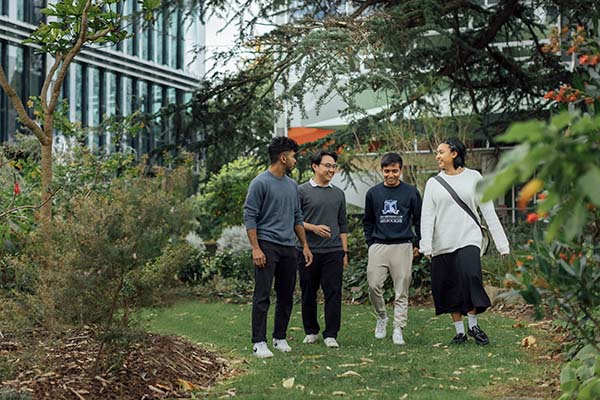Getting started in the Bachelor of Agriculture
Congratulations on receiving your offer to study the Bachelor of Agriculture! This is your opportunity to use science, technology and business to tackle critical sustainability issues and build a career with lasting impact.
We know that you have lots of questions about your studies and we want to ensure that you have a smooth transition to university life. If you haven't already, make sure you accept your offer to confirm your place here, sign up to Orientation and other important events and check out the useful resources below to help you in your first week of study.

Planning your course
Below are the key resources you'll need to understand your course requirements, create a course map, enrol in subjects and create your timetable. More information on course planning in general is available on the Current students website.
University of Melbourne Handbook
The University of Melbourne Handbook is the official source of course and subject information – you'll consult it every year to learn about subject prerequisites, assessment, contact hours and timetable details.
Q fever screening and vaccination
If you are a student in the Bachelor of Agriculture, providing evidence of Q Fever inoculation is compulsory as part of your enrolment and participation in the course. Find out how to arrange and register your vaccination before you start your study.
More subject planning information
Subjects with special requirements and restrictions
Some subjects require vaccinations and special equipment like lab equipment and PPE, while others have limited capacity – some of them are available on a "first come, first served" basis, while others have selection criteria.
Undergraduate research projects
Undertaking a research project is a fantastic way to develop practical scientific skills. It will also provide valuable experience to students considering honours, masters or a PhD in Science.
More course planning information
-
Course Planning Tool
My Course Planner can help you to plan your subjects for different majors, minors and specialisations in a number of undergraduate and graduate courses.
-
Need help planning your course?
If you're having any trouble, get in touch with Stop 1 for a course planning appointment or to access the full range of student services. You're welcome to call, visit or chat online.
-
Dookie Semester
The Dookie semester allows Bachelor of Agriculture students in their second and third years to combine their studies with what’s happening on the Dookie Farm and surrounding region to get real life experience.
-
Enrich your studies
Overseas study, internships and exciting industry projects are just some of the ways you can enrich your time studying with us. Find out more.
Studying and student life
We have a number of resources to support you in your studies, alongside plenty of opportunities to get involved in university life and enrich your degree.
The Learning Management System
The Learning Management System (LMS) is where you access subjects, watch lectures and submit assignments. Log in to the LMS
My.unimelb
My.unimelb is where you can access your student email, calendar and personal and enrolment details. Visit My.unimelb
Stop 1 and student services
We offer one of the most comprehensive student support networks in Australia, including health and welfare, careers and employability and administrative and learning support services and resources. Stop 1 can connect you with the full range of student services to support your success, either online or in-person.
Supporting your study
Peer mentoring
To help you settle in, meet new people and learn more about everything the University has to offer, you will be matched with a peer mentor and a group of first-year peers from your course who you will meet throughout the first few weeks of your first semester.
Melbourne Peer Mentoring Program
Academic advising
In your second semester, you will be matched with an academic adviser, who you will meet with four times throughout your studies. Your adviser will be an experienced member of the Faculty’s teaching team and will take an active interest in your wellbeing, progress and success throughout your degree.
More information about student life
-
Student life
Find out how to make your time at university the best it can be – learn about volunteering, student clubs and societies and more.
-
Build your academic skills
Studying at university requires you to think, write and demonstrate your knowledge in new and challenging ways – but there are many services available to help you do it.
-
Awards, prizes and scholarships
We are committed to recognising and supporting the academic achievement of students – and inspiring them to excel and make an impact in the world – with some of the most generous awards, prizes and scholarships in Australia.
-
Careers and future studies
Discover the careers your studies will open up, increase your employability and access additional study options and programs.
Support and contacts for students
Find contact information for a range of teams, support channels and student services from across the Faculty and the University.